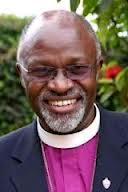Mo Ibrahim Prize standards not too high to achieve

The question on whether or not the Mo Ibrahim prize has inspired African leaders to strive for excellence continues to generate debate.
Civil Society activist Bishop Zac Niringiye has hit back at some regional leaders who say the standards are too high to achieve.
Some Kenyan leaders and scholars described the standards as unachievable.
In the last 8 years the prize has only been given to four leaders, which they claim is a sign that the governance yardstick needs to be changed.
However, Bishop Niringiye says such a move would mean settling for mediocrity in leadership.
“We have leaders who are unfortunately like children. They have to be given incentives to serve their countries well”. But sadly even with the incentives some leaders want we citizens of the African continent to settle for mediocrity in terms of service delivery and human rights observance.”
The Mo Ibrahim annual prize recognizes African leaders who have lifted people out of poverty and paved the way for sustainable and equitable prosperity.
The former Head of State must have been democratically elected, left office in the last three years and demonstrated exceptional leadership.
The prize and foundation are both named after Ibrahim, a Sudanese billionaire who struck it rich as an Africa-focused entrepreneur in the mobile communications field and now invests heavily in the continent of his birth.
This year, the the world’s largest annual prize was awarded to outgoing Namibian President Hifikepunye Pohamba, although there was speculation that former Kenyan President Mwai Kibaki was shortlisted to receive the award and stood a chance of being the winner.
Pohamaba won the prize due to his focus in forging national cohesion and reconciliation and his ability to command the confidence and the trust of his people. The Namibian president is set to leave office this month after the official swearing in of his successor.
The Ibrahim Prize for Achievement in African Leadership, the world’s largest annual prize, was first awarded in 2007 to President Joaquim Chissano of Mozambique and the prize committee reserves the right to decline the award if no outgoing head of state meets the criteria.
In 2008 the prize was handed to Festus Mogae, former leader of Bostwana for his outstanding leadership that ensured Botswana’s continued stability and prosperity in the face of an HIV/AIDS pandemic, which threatened the future of his country and people.
In 2009 the Prize Committee did not select a winner. While in 2010 the Prize Committee again decided not to award the prize with Dr. Ibrahim saying the standards set for the prize are high, and the number of eligible candidates small.
In 2011 the Prize was awarded to Pedro Pires, former president of Cape Verde, while in 2014 it was scooped by Namibia’s Hifikepunye Pohamba.
An independent Prize Committee composed of eminent figures, including two Nobel Laureates recognises and celebrates African leaders who have developed their countries, lifted people out of poverty and paved the way for sustainable and equitable prosperity
It also highlights exceptional role models for the continent and ensures that Africa continues to benefit from the experience and expertise of exceptional leaders when they leave national office, by enabling them to continue in other public roles on the continent.
It follows the following critter;
•The candidate must be a former African Executive Head of State or Government
• Must have been democratically elected and left office in the last three years
• Must have served his/her constitutionally mandated term and demonstrated exceptional leadership during his tenure.
With a US$5 million initial payment, plus $200,000 a year for life, the Mo Ibrahim prize is believed to be the world’s largest, exceeding the $1.3m Nobel Peace Prize.










Comments
This post currently has no comments.